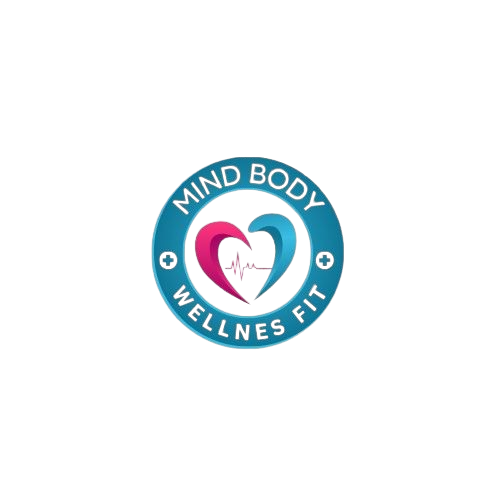Hormones play a significant role in regulating many bodily functions, from metabolism and mood to energy and reproductive health. Achieving holistic hormone balance is vital for overall health, as imbalances can lead to issues like fatigue, weight gain, and mood swings. One of the most effective ways to support hormone regulation is through proper nutrition. By focusing on nutrient-rich foods, we can naturally encourage hormonal harmony and address common imbalances in a sustainable way.
Understanding Hormonal Health
The endocrine system, responsible for hormone production, regulates everything from growth to metabolism. Key hormones such as insulin, thyroid hormones, estrogen, and cortisol control crucial processes that affect our physical and emotional well-being. A holistic hormone balance considers not only hormonal production but also how other factors, such as diet, stress, and environmental toxins, influence hormone regulation. Poor diet, chronic stress, and exposure to endocrine-disrupting chemicals can easily disturb this balance.
Nutrients Essential for Hormone Balance
Nutrition plays an undeniable role in achieving holistic hormone balance. Specific nutrients are essential for the production, regulation, and metabolism of hormones. Healthy fats, for example, provide the building blocks for hormone synthesis. Omega-3 fatty acids, monounsaturated fats, and cholesterol are crucial for producing hormones like estrogen and testosterone.
Protein and amino acids are equally vital, as they help the body synthesize hormones, while fibre promotes hormone detoxification, especially excess estrogen. Micronutrients such as magnesium, zinc, and B vitamins are essential for maintaining optimal hormonal function. Ensuring an adequate intake of these nutrients through a balanced diet can go a long way in promoting holistic hormone balance.
Best Foods for Supporting Hormonal Health
When it comes to achieving holistic hormone balance, the foods you eat can make all the difference. Start by incorporating healthy fats into your diet, such as those found in avocados, nuts, seeds, fatty fish, and olive oil. These fats are not only nutritious but also support the production of essential hormones.
Cruciferous vegetables like broccoli, kale, and cauliflower are excellent for supporting holistic hormone balance, as they help the body metabolize estrogen more efficiently, reducing the risk of hormone-related imbalances. Fermented foods such as yogurt, kimchi, and sauerkraut are key players in supporting gut health, which is crucial for hormone regulation. A healthy gut microbiome can positively impact everything from metabolism to estrogen levels, enhancing holistic hormone balance.
High-quality protein sources like grass-fed meats, wild-caught fish, legumes, and eggs support the building blocks of hormones. To further promote holistic hormone balance, adaptogenic herbs and superfoods like maca, ashwagandha, and turmeric help regulate stress hormones, supporting adrenal health.
Foods That Disrupt Hormonal Balance
Just as certain foods promote holistic hormone balance, others can contribute to imbalances. Processed foods and refined sugars can trigger insulin spikes, disrupting blood sugar levels and causing hormonal fluctuations. A diet high in sugar also impacts cortisol, the stress hormone, which, when elevated, can interfere with other hormones like thyroid hormones.
Hormone-disrupting chemicals found in pesticides, plastics (like BPA), and artificial additives can wreak havoc on holistic hormone balance by interfering with estrogen levels and other crucial hormones. Limiting exposure to these chemicals, alongside cutting back on processed foods, is essential for supporting natural hormone regulation.
Excessive caffeine and alcohol can also harm hormonal health. Both substances stress the body, raising cortisol levels, which ultimately impedes the holistic hormone balance that the body needs to function properly.
Lifestyle & Dietary Habits for Long-Term Hormone Health
Achieving holistic hormone balance requires more than just food—it also involves adopting healthy lifestyle habits. Regularly eating nutrient-dense meals at consistent times supports blood sugar regulation, which is key for balancing hormones. Staying hydrated is equally important, as water helps eliminate toxins that could otherwise hinder hormone balance.
Managing stress is crucial for maintaining holistic hormone balance. Practice mindfulness, yoga, or meditation to lower cortisol and promote relaxation. Consistently getting enough sleep is equally important, as sleep plays a direct role in the regulation of growth hormones, cortisol, and other vital hormones. Finally, regular physical activity, particularly strength training and cardiovascular exercise, supports hormonal health by improving insulin sensitivity and promoting the production of feel-good hormones like endorphins.
Takeaway
Nutrition is a powerful tool for achieving holistic hormone balance, as it directly influences the production, regulation, and elimination of hormones in the body. By incorporating nutrient-dense foods into your diet, reducing exposure to hormone-disrupting chemicals, and adopting healthy lifestyle habits, you can naturally support hormonal harmony and improve overall well-being. Start making small dietary and lifestyle changes today to nurture your body’s natural holistic hormone balance and experience the positive effects it can have on your health.






